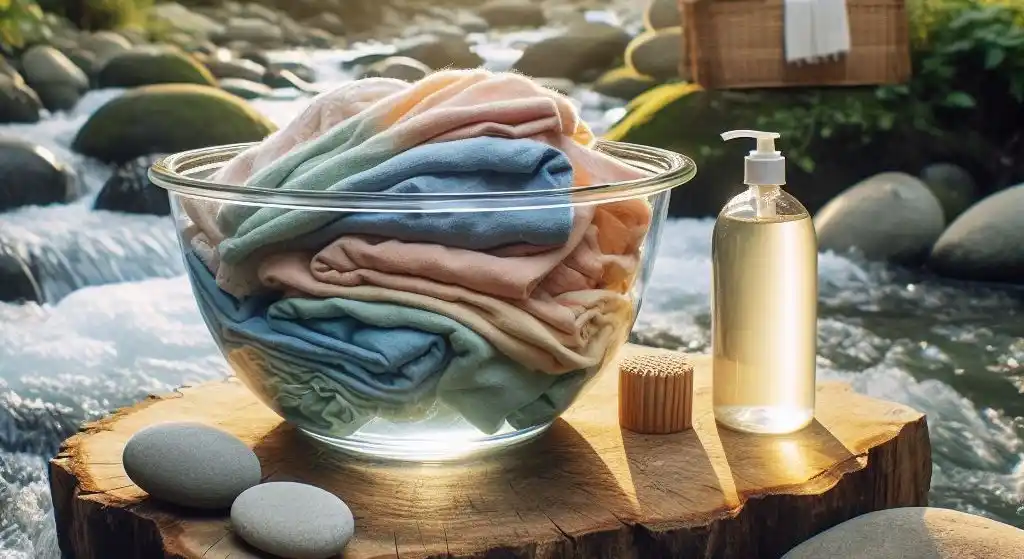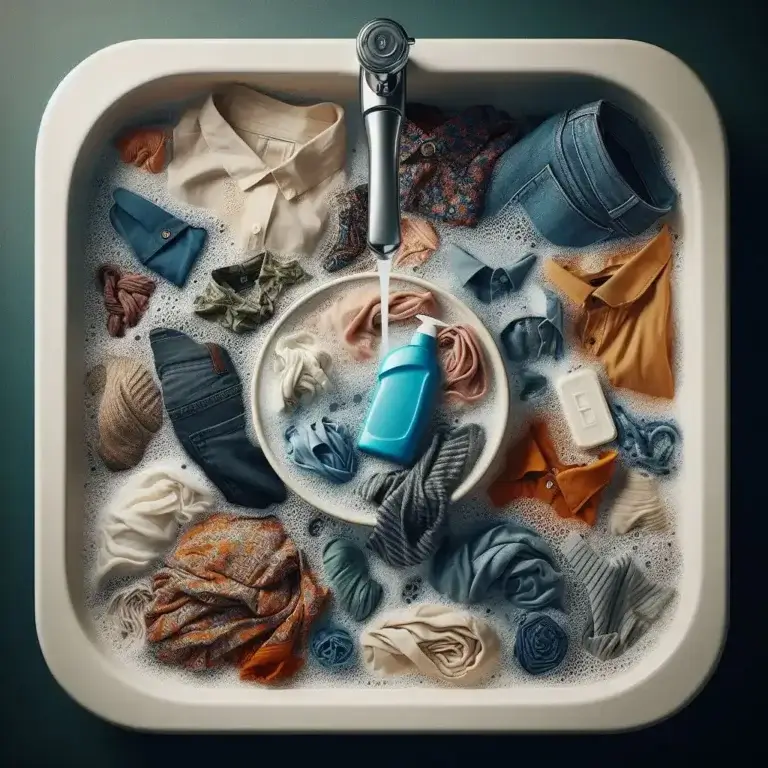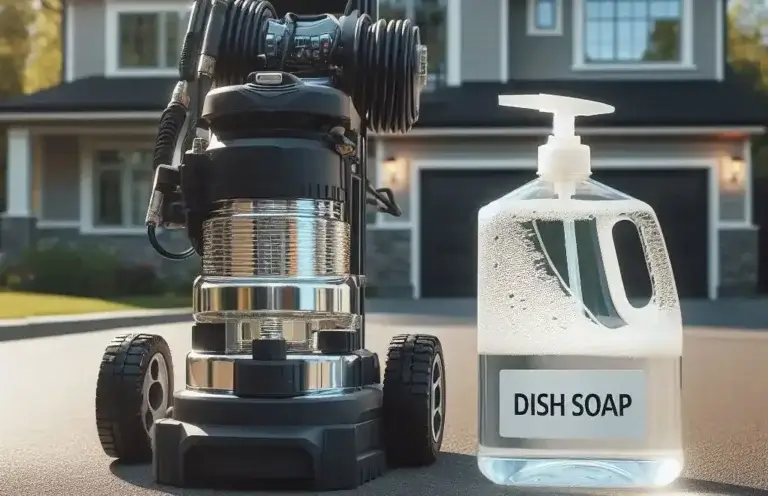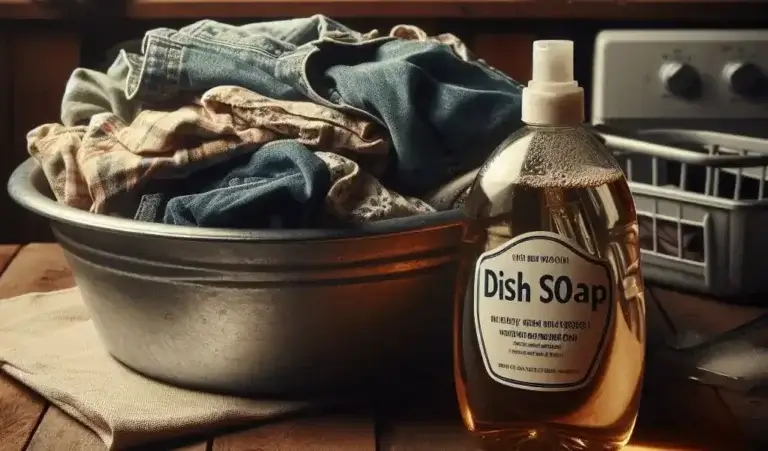Can You Use Washing Up Liquid to Wash Clothes? 3 Reasons to Not Use Dish Soap for Washing Clothes
Doing laundry can be a tedious chore. When you run out of laundry detergent, you may be tempted to grab the nearest bottle of dish soap or washing up liquid to wash your clothes. But should you use washing up liquid in your washing machine? Most experts say you shouldn’t use dish soap or washing up liquid to wash your clothes. Here are 3 reasons why, along with some advice on how to properly care for your laundry.
This comprehensive guide covers whether can you use washing up liquid to wash clothes or not, and also describes 3 reasons to not use dish soap for washing clothes. So let’s start reading:
Table of Contents
Is Washing Up Liquid Good for Washing Clothes?
Washing-up liquid, sometimes called dish soap or dish detergent, is formulated very differently from laundry detergent. Dish soap is designed to cut through tough grease and food residue to clean dishes and cookware. Laundry detergent is specially formulated to dissolve body soils and stains while being gentle on fabric textures.
Using the wrong soap can lead to cleaning problems, excess wear, fiber damage, and even appliance issues. Read on to learn why washing up liquid is not the best choice for washing most laundry loads. We’ll also provide some tips if you ever find yourself in a pinch without laundry detergent.
Reasons Not to Use Washing Up Liquid for Laundry
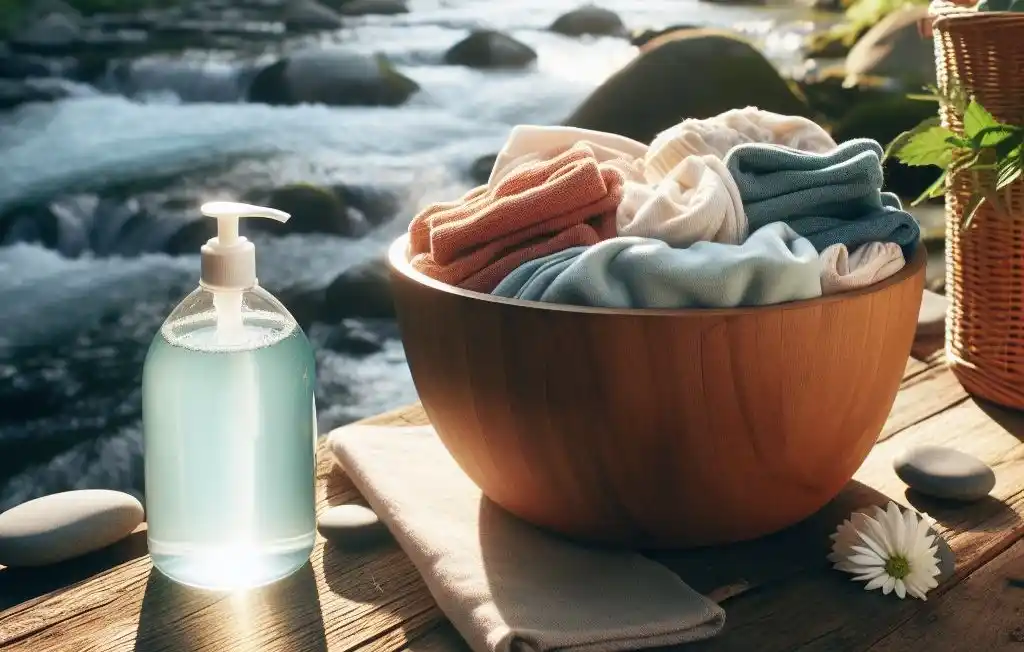
1. Washing Up Liquid Creates Excess Suds
One of the biggest issues with using washing-up liquid to wash your clothes is suds. Dish soap formulations create mounds of thick, billowy suds that cling to surfaces and lift away grease.
Most modern washing machines are designed to handle some suds. But the extreme amount of suds produced by dish soap can easily overwhelm home washers.
Thick suds may prevent your machine from properly rinsing laundry. Soap residue left behind can make fabrics stiff, dingy, and rough.
Excess suds can also leak out of your washing machine during the wash cycle. This sudsy overflow (sometimes called suds locking) can damage floors and carpets.
2. Harsh Detergents Can Damage Fabrics
The formulations used in dish soaps are much too strong for most fabric types. The extra grease-cutting power that makes dish soap excellent for scrubbing pots and pans also contains harsh chemicals that damage delicate fabrics.
Using full-strength dish soap strips away fabric dyes and shortens the lifespan of clothes. It can fade colors, weaken fibers, create holes, and deteriorate elastic waistbands and stretch fabrics. Over time, using dish soap causes excessive wear that ruins clothing.
Even small amounts of dish soap in each wash load accelerate fabric damage. It’s best to avoid using dish soap on most laundry except for heavy stains (see tip below).
3. Soap Buildup Can Damage Washing Machines
Laundry detergents are designed to fully dissolve during the wash and rinse cycles. Any leftover detergent is easily flushed away down household drain pipes.
Dish soap contains sticky ingredients that cling to surfaces. When you add dish soap to your washing machine, residue sticks to hoses, gaskets, seals, pumps, and hidden crevices.
Over time, this sticky soap scum can interfere with washing machine parts. Residue buildup causes leaks, mold growth, foul odors, and corrosion. It also voids your appliance warranty.
Soap scum that doesn’t dissolve can leave white marks and stains on freshly washed laundry. It may also clog household drain pipes.
Tips for Using Dish Soap on Laundry
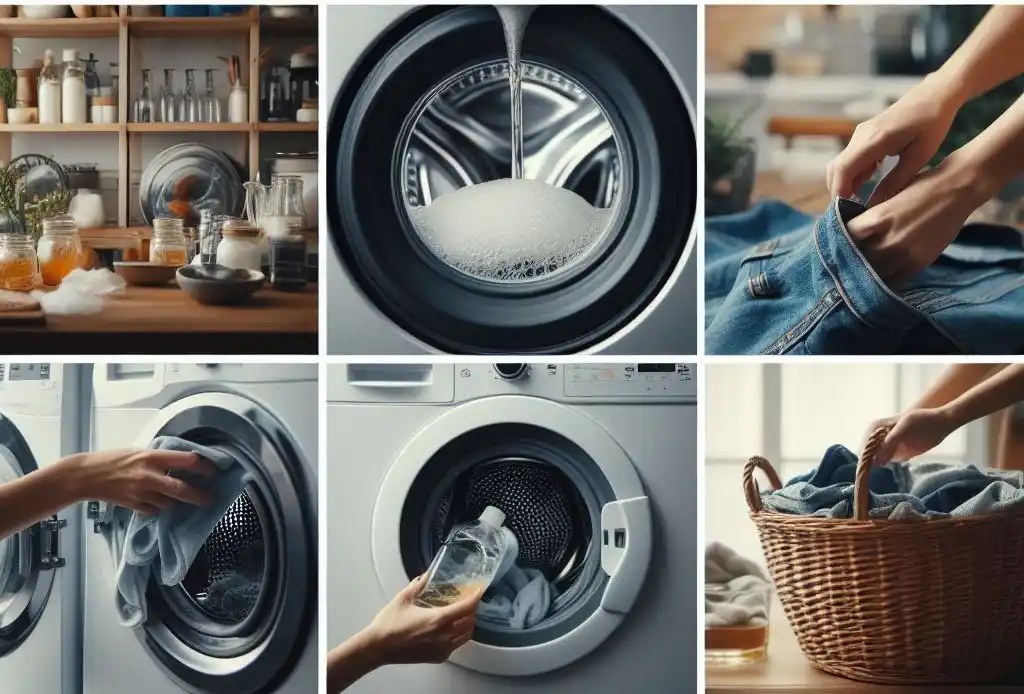
While dish soap is too harsh for most regular laundry, it can occasionally come in handy as a stain remover. Here are some tips for using dish soap on extra-tough stains:
- Pretreat small stains – Mix a few drops of dish soap with water in a spray bottle. Lightly spritz over grease-based stains like food, oil, tar, or motor oil. Allow to soak for 5-10 minutes before laundering.
- Spot-treat stubborn stains – For mud, grass, makeup, or crayon stains, rub a drop of diluted dish soap directly onto the spot. Let sit before washing.
- Soak heavily soiled items first – Add a few teaspoons of dish soap to a sink or bucket full of warm water. Allow super-dirty clothes to soak before washing.
- Use sparingly – A little dish soap goes a long way. Use only a drop or two diluted in water. Too much can still harm fabrics.
- Avoid frequent use – Only use dish soap as an occasional stain-removing booster, not for every laundry load.
For best results, always check garment tags first and test dish soap on an inconspicuous area. Then launder clothes with the proper amount of laundry detergent and the recommended wash cycle for the fabric type.
What to Use if You Run Out of Laundry Detergent
If you unexpectedly run out of laundry detergent, don’t panic. Here are a few handy substitute options:
- Bar soap – Grate up a few shavings of plain bar soap like Ivory or Castile soap. Avoid scented varieties.
- Baking soda – Add 1/4 to 1/2 cup per load. Helps boost stain-fighting.
- Borax – Mix 1-2 tablespoons with bath soap shavings. Improves cleaning.
- White vinegar – Add 1/4 to 1/2 cup to the rinse cycle. Reduces soap residue.
- Baby shampoo – Use a small amount for delicate fabrics. Contains fewer harsh chemicals.
You can also make an emergency batch of homemade laundry soap using basic pantry items:
Homemade Laundry Soap
- 1 bar soap, finely grated
- 1 cup washing soda
- 1 cup borax
Gently melt grated soap in a saucepan with 6 cups water, stirring constantly. Remove from heat. Stir in washing soda and borax until dissolved. Allow to cool completely then store in an airtight container. Use 1-2 tablespoons per laundry load.
When to Avoid Washing Up Liquid for Laundry
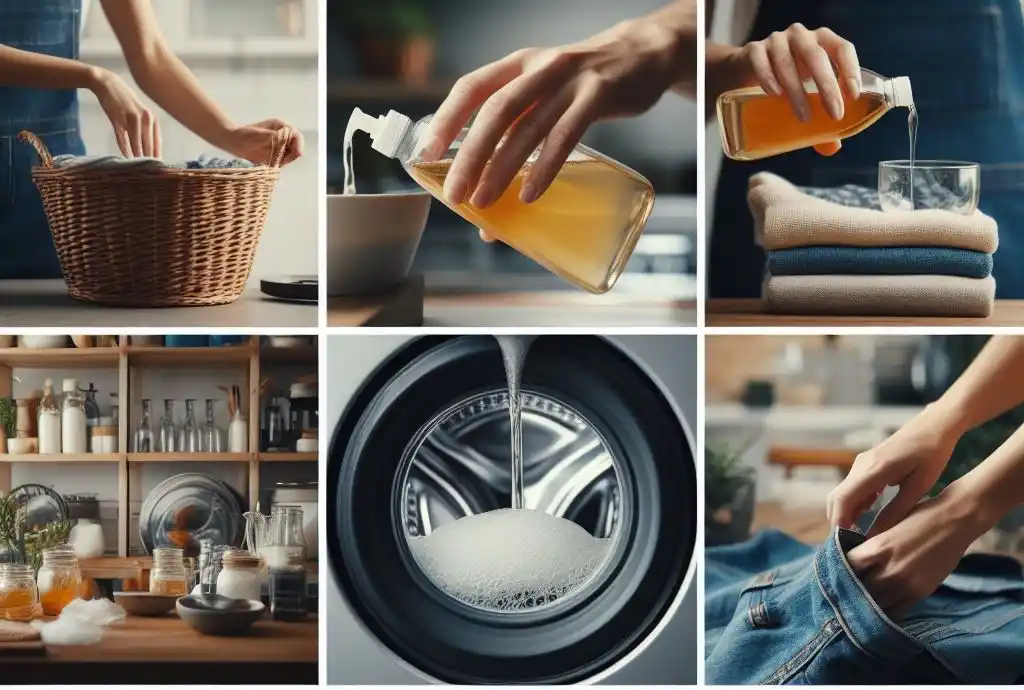
Dish soap seems handy to use when you’re out of laundry detergent. But the truth is, washing up liquid contains chemicals and additives that harm clothing fibers and washing machine parts.
Avoid using dish soap or washing up liquid when washing:
- Delicate fabrics – silk, satin, lace, wool, spandex
- Colored clothing – faded dyes
- White fabrics – grays whites over time
- Workout wear – ruins stretchy fibers
- Baby clothes and cloth diapers – irritate sensitive skin
- Appliances – ruins washing machine pumps, hoses and seals
Stick to using laundry detergent formulated for home washing machines and fabrics. Look for options that match the soil level and fabric type you’re washing. With proper care, your clothes and washer will stay looking their best.
FAQs: Can You Use Washing Up Liquid to Wash Clothes
Can you put washing up liquid in a washing machine?
It’s not recommended. Washing up liquid creates thick suds that overwhelm home washers. The residue left behind can damage machine parts. Use laundry detergent instead.
What happens if you use dish soap instead of laundry detergent?
Dish soap is too harsh for most fabrics. It can fade dyes, deteriorate elasticity, weaken fibers, and leave behind a sticky residue. Only use dish soap to pretreat occasional tough stains.
Why you should never use dish soap on laundry?
The degreasing agents that make dish soap excellent for scrubbing pans will damage delicate clothing fibers over time. Using dish soap also voids washing machine warranties if it leaves scum buildup on machine parts.
Can a small amount of dish soap be used in laundry?
Very small amounts of dish soap in laundry water will still produce excess suds. It’s best not to make a regular habit of adding even tiny amounts of dish soap to wash loads. Use heavy-duty laundry detergents instead for tough stains.
What happens if too many suds are in the washing machine?
Excess suds produced by dish soap or even too much laundry detergent can overflow during the wash cycle. Overflow leaks water all over floors and under nearby appliances. Thick suds also prevent clothes from properly rinsing.
The Bottom Line
Dish soap might be handy for laundry emergencies but isn’t well suited for frequent fabric washing. Stick to using heavy-duty laundry detergent designed for your washing machine model and loads. Check garment tags before pretreating occasional stains with just a drop or two of diluted dish soap.

